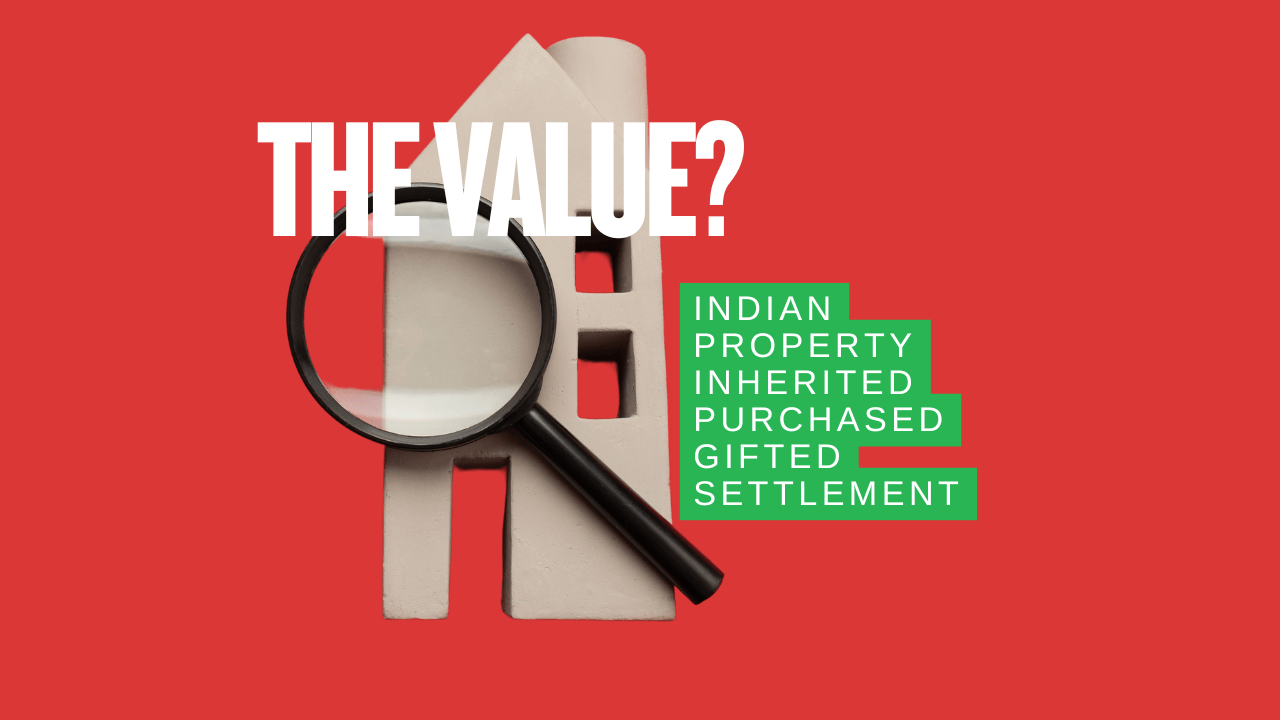In this segment you will find information about Capital Gains Tax India and its correlation to PAN Card.
As a Foreign Citizen of India with immovable property either inherited, gifted or purchased, frequently the question persists whether capital gains tax is applicable at key stages of property sale/acquisition. If so, how and under what circumstances?
We begin with two key points in context of CGT India and PAN;
- Definition of CG
- PAN & CGT
1. Definition – CG
Firstly, the Income Tax Department Government of India, define the following;
Profits or gains arising from transfer of a capital asset are called “Capital Gains” and are charged to tax under the head “Capital Gains”.
To reiterate, if a capital asset such as immovable property is transferred, as a result any profits or gains arising out of such an activity falls under capital gains.
Also, there are two specific classes of CG on capital asset;
Classification of CG
Income from capital gains is classified as;
- Short Term CG, and
- Long Term CG
The reason for categorisation of CG into short and long term, is to determine the nature of gain. The ITD, states the following;
To determine the taxability, capital gains are classified into short-term capital gain and long-term capital gain. In other words, the tax rates for long-term capital gain and short-term capital gain are different.
Moving ahead, PAN and its relation to CGT.
2. PAN
The full form of PAN is Permanent Account Number. It is a mandatory requirement for financial transactions in India.
Listed below are a few key points;
- PAN is not automatically allotted and has to be applied for under the defined parameters of the Government of India.
- An Indian Citizen must hold a PAN as per the parameters of Indian tax authority.
- A Foreign Citizen of India must hold a PAN as per the parameters of Indian tax authority.
- You cannot file income tax without PAN.
- Capital Gains (where applicable) subsequent rebates/relief may not be accessible to you without PAN.
- PAN is required for all Indian banks accounts under KYC.
- Aadhar and PAN link for foreign citizen is exempt as per the recent updates.
- From 30 June 2023, if your PAN is not linked to your Aadhaar it will be inoperative.
- PAN is mandatory in Sale or purchase of any immovable property for an amount exceeding Rs. 10 lakh or valued by stamp valuation authority referred to in section 50C of the Act at an amount exceeding ten lakh rupees.
PAN is a mandatory requirement for capital asset related activities. Without a PAN affairs may be delayed. For example, you maybe in process of selling Indian property and PAN is required for your representative to fulfill the legal formalities.
In relation to income accrued on capital asset you should know which category your income may fall within.
Would short term or long term capital gains be applicable? We elaborate on the difference between both in terms of asset class. Short term or long term.
Before we proceed into short term and long term capital asset;
What type of income falls under the banner of Capital Gains Tax India?
Income Under Capital Gains
As per the official authority, Income Tax Department, Government of India, the definition of income that falls under capital gains taxability is as follows;
“Any profit or gain arising from transfer of a capital asset during the year is charged to tax under the head Capital Gains.”
Capital Asset
Briefly, a Capital Asset would be for example, a form of property, securities held by FII, ULIP, jewellery, archaeological collections, drawings, paintings, sculptures; or any work of art. However, it would not include movable property “personal effects” such as wearing apparel, furniture and so on.
Property such as land, residential or commercial building is a capital asset. A capital asset may or may not be connected with business or profession of the taxpayer. E.g. Bus used to carry passenger by a person engaged in the business of passenger transport will be his capital asset.
Below you will find an illustration.
Illustration of CA Applicability
Illustration 1: (A) purchased a residential house in January, 2020 for Rs. 84,00,000. (A) sold the house in April, 2023 for Rs. 90,00,000. In this case residential house is a capital asset of (A) and, hence, the gain of Rs. 6,00,000 arising on account of sale of residential house will be charged to tax under the head “Capital Gains”.
Illustration 2: (A) is a property dealer. (A) purchased a flat for resale. The flat was purchased in January, 2020 for Rs. 84,00,000 and sold in April, 2023 for Rs. 90,00,000. In this case (A) is dealing in properties as a business. Hence, flat purchased by (A) would form part of stock-in-trade of the business. . In other words, for (A) flat is not a capital asset and, hence, gain of Rs. 6,00,000 arising on account of sale of flat will be charged to tax as business income and not as capital gain.
Next, we look at the definition and key differentiation between STCA & LTCA.
Difference – Short Term and Long Term Capital Asset
| Short Term Capital Asset | Long Term Capital Asset |
Gain arising on transfer of short-term capital asset is termed as short-term capital gain. Any capital asset held by the taxpayer for a period of not more than 36 months immediately preceding the date of its transfer will be treated as short-term capital asset. Period of holding to be considered as 24 months instead of 36 months in case of unlisted shares of a company and immovable property being land or building or both. PAN card is a mandatory requirement. | Gain arising on transfer of long-term capital asset is termed as long-term capital gain. Any capital asset held by the taxpayer for a period of more than 36 months immediately preceding the date of its transfer will be treated as long-term capital asset. Period of holding to be considered as 24 months instead of 36 months in case of unlisted shares of a company and immovable property being land or building or both. PAN card is a mandatory requirement. |
The clear difference between short term and long term capital asset is the length of time that the asset is held.
The difference being, less than 36 months and more than 36 months as stated by the ITD. However, there are few exceptions to this rule like gain on depreciable asset is always taxed as short-term capital gain.
Here is an illustration to explain;
(A) is a salaried employee. In the month of April, 2015 (A) purchased a piece of land and sold the same in December, 2023. In this case, land is a capital asset for (A). Because (A) purchased land in April, 2014 and sold it in December, 2023 i.e. after holding it for a period of more than 24 months. Hence, land will be treated as long-term capital asset. (ITD.GOV.IN)
Vice versa, (A)’s sale of land would fall into short- term capital asset when held for under 24 months. Either way, (A) requires a PAN in order to fulfill legal and official obligations.
With consideration of the above illustration, below is another example, this time for residential property sale. The purpose is to identify the asset class, short term asset or long term asset.

Residential Property Sale – STCA & LTCA
| Illustration of Residential Property Asset Class – LTCA | Illustration of Residential Property Asset Class – STCA |
| In April, 2023 (B) sold residential house property which was purchased in May 2003. Capital gain on such sale amounted to Rs. 8,40,000. In this case the house property is a long term capital asset and hence, gain of Rs. 8,40,000 will be charged to tax as long-term capital gain. (ITD.GOV.IN) (B) requires a PAN in order to fulfill legal and official obligations in order to complete sale of Indian property. | In April, 2023 (B) sold residential property which was purchased in May, 2021.Capital gain on such a sale amounted to Rs. 8,40,000. In this case the house property is a short-term capital asset and, hence, gain of Rs. 8,40,000 will be charged to tax as short-term capital gain. (ITD.GOV.IN) (B) requires a PAN in order to fulfill legal and official obligations in order to complete sale of Indian property. |
Terminology
| Capital Asset | Capital Gain (CG) | Capital Gains Tax India (CGT) |
| Maybe a short term asset held | upon transfer, you receive a Short term CG | your asset falls under, Short term CGT |
| Maybe a Long Term asset held | upon transfer, you receive a Long term CG | your asset falls under, Long term CGT |
Lastly, we discuss how capital gains is calculated for capital gains tax based on the short and long term differentiation?
Below are the particulars for long term capital gains calculation. This applies when your representative completes due process of regulatory financial formalities in relation to your capital asset transfer.
Long-term capital gain arising on account of transfer of long-term capital asset – Calculation/Particulars
- Full value of consideration (i.e., Sales consideration of asset)
- Less: Expenditure incurred wholly and exclusively in connection with transfer of capital asset (e.g., brokerage, commission, advertisement expenses, etc.).
- Netsale consideration
- Less: Indexed cost of acquisition
- Less: Indexed cost of improvement if any
For more on PAN – Foreign Citizen V Indian Citizen PAN explained
Frequently Asked Questions
Generally, long-term capital gain is charged to tax @ 20% (plus surcharge and cess as applicable).
Profits or gains arising from transfer of a capital asset are called “Capital Gains”
Yes
Related Services
- Transfer of property in India
- Indian Property disputes
- Sell property in India
- Power of Attorney Service
We can also assist with other Overseas Indian Services in London:
- Illegal occupation of property in India
- Family Settlements and partition of NRI Indian property
- Ancestral real estate and inheritance advisory under Indian law
- NRI Property Transfer
- Possession of NRI Property
- Recovery of NRI money under Indian Law
- NRI Succession Certificate in India
- Injunction against alienation of NRI property in India
- Developer Claims under the Consumer Protection Act in India
- NRI property disputes
- Visas to India
- Indian Power of Attorney
- NRI PAN Card
- Overseas Citizenship of India (OCI)
- Inter-Country Adoption
- Divorce proceedings under Indian Law for parties settled abroad






